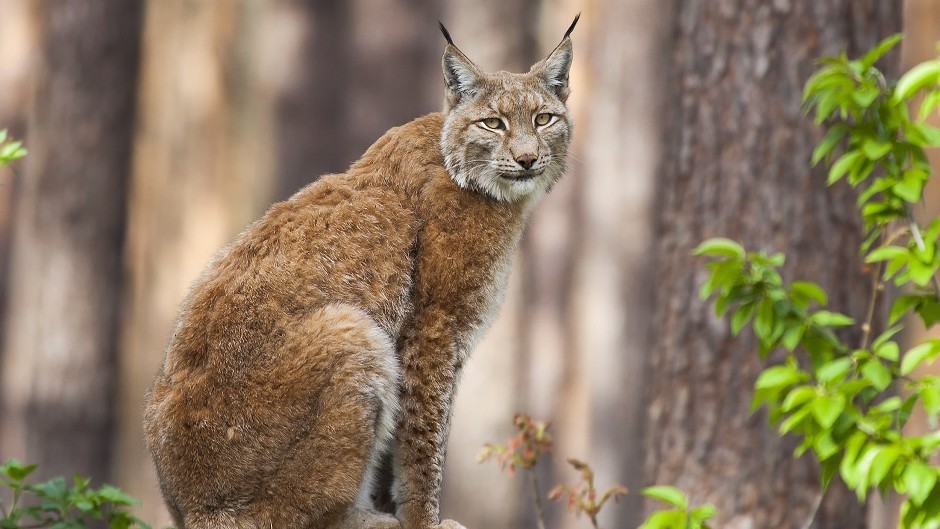Wildlife experts will be discussing the benefits of reintroducing the Eurasian Lynx to the Highlands during upcoming lectures being held in the south of England.
Re-wilding the Highlands is the subject being discussed during the two sold-out events at the universities of Exeter and Plymouth today and tomorrow.
Ecosystem restoration and reintroducing keystone species will be among the key talking points.
Topical lectures in Plymouth tomorrow will feature acclaimed writer George Monbiot and leading conservationist Alan Watson Featherstone, founder of the Trees for Life charity.
Staff and students at the south coast university have been researching biodiversity of the forest canopy at the charity’s Dundreggan conservation estate near Loch Ness since 2011.
Mr Featherstone said: “Rewilding offers an exciting vision of hope. In the Highlands of Scotland we have an opportunity to reverse environmental degradation and create a world-class wilderness region – offering a lifeline to wildlife including beavers, capercaillie, wood ants and pine martens, and restoring natural forests and wild spaces for our children and grandchildren.”
Mr Monbiot, a reputed author and columnist for The Guardian, said: “Rewilding offers us a big chance to reverse destruction of the natural world. Letting trees return to bare and barren uplands, allowing the seabed to recover from trawling, and bringing back missing species would help hundreds of species that might otherwise struggle to survive – while rekindling wonder and enchantment that often seems missing in modern-day Britain.”
Both events will aim to explore the links between rewilding and wellbeing, and highlight how people can get involved initiatives in their own communities.
Problems in the north include long-term deforestation and overgrazing by too many deer and sheep, which leaves much of the land depleted and barren, with wildlife in retreat or missing.
Future rewilding could involve the reinstatement of missing species, including apex predators – which play a crucial top-down regulatory role in ecosystems.
Trees for Life believes that the Eurasian lynx, already reintroduced to areas of Europe such as the Alps and Jura mountains, is a realistic candidate for reintroduction by 2025.
The hope would be to disturb rather than reduce red deer populations, causing these animals to move more frequently so that grazing is less concentrated in specific areas.
Restoring enough native woodland as habitat would be crucial, and some experts estimate that the Highlands could support a genetically viable population of 400 animals.
Experts are uncertain as to when the lynx died out in Britain, although some discoveries suggest its extinction date may have been some 1,500 years ago.
